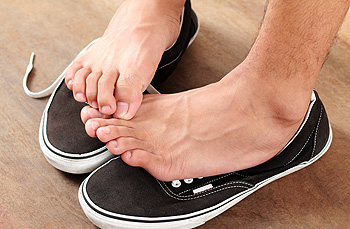Top Dermatology Treatments for Hyperhydrosis of Hands and Feet: What You Need to Know
Top Dermatology Treatments for Hyperhydrosis of Hands and Feet: What You Need to Know
Blog Article
Understanding the Origin of Excessive Sweating and Its Effect On Life
While it is frequently comprehended as a physiological response to regulate body temperature level, the triggers for extreme sweating can vary widely among people, including not only physical variables yet likewise emotional and emotional aspects. By diving right into the root creates of hyperhidrosis and exploring its diverse effects, a much deeper understanding of this pervasive concern can be gotten, shedding light on the intricacies that individuals grappling with excessive sweating browse on a daily basis.
Physiology of Sweat Glands
The regulation of sweat manufacturing, a critical physiological procedure, is mainly controlled by the task of gland distributed throughout the body. Gland are categorized right into two major types: eccrine and apocrine glands. Eccrine glands are one of the most various and are located in mostly all locations of the body. They play a crucial role in thermoregulation by secreting a watery liquid onto the skin's surface, which vaporizes and helps cool the body down. In comparison, apocrine glands are focused in areas abundant in hair follicles, such as the armpits and groin, and their secretions are thicker and milklike in appearance.
When the body temperature climbs, either due to physical activity, high temperature levels, or psychological tension, the anxious system activates the sweat glands to create sweat. This sweat is made up primarily of water and electrolytes like sodium and chloride. The process of sweat manufacturing is crucial for maintaining the body's interior temperature within a slim, optimum range, highlighting the vital duty gland play in human physiology.
Triggers for Excessive Sweating
In understanding the root triggers of extreme sweating, it is vital to recognize the triggers that can lead to this physical action. Physical effort, high temperatures, and spicy foods are likewise understood to cause excessive sweating in people vulnerable to this condition.
Additionally, drugs such as some antidepressants, opioids, and certain supplements can likewise work as triggers for hyperhidrosis. Understanding these triggers is necessary in handling extreme sweating effectively - Treatment for hyperhydrosis of hands. By determining and resolving the certain triggers that motivate extreme sweating in a specific, doctor can establish personalized therapy plans to reduce this condition and enhance the individual's top quality of life
Medical Issue Associated
Connected with extreme sweating are various clinical problems that can exacerbate this physical reaction. One usual condition is hyperhidrosis, a condition defined by unusually increased sweating that exceeds the body's thermoregulatory demands. This can manifest in focal areas like the hands, soles, underarms, or face, affecting an individual's lifestyle because of social shame and discomfort.
Additionally, endocrine disorders such as hyperthyroidism, diabetes, and menopausal warm flashes can also result in extreme sweating. Hyperthyroidism creates an overflow of thyroid hormonal agents, speeding up metabolism and triggering sweating. Diabetic issues can cause sweating episodes, specifically during hypoglycemic episodes when blood glucose levels drop as well low. Menopausal warm flashes, connected to hormonal fluctuations during menopause, can cause intense and unexpected sweating, commonly come with by flushing and heart palpitations.
Moreover, try these out infections like endocarditis, hiv, and tuberculosis have been connected with evening sweats, an usual sign known to interfere with rest and impact total health. These clinical problems highlight the diverse series of underlying factors that can add to too much sweating, requiring detailed analysis and management by health care specialists.
Psychological and psychological Factors

Influence On Social Communications
Excessive sweating can have profound impacts on a person's capacity to engage comfortably in social interactions. The visible indications of sweat spots or wet patches on apparel can result in embarrassment and self-consciousness, causing people to take out from social circumstances. This withdrawal can affect relationships, limitation social activities, and impede expert and individual development.

In addition, the stress and anxiety and self-confidence problems originating from extreme sweating can impact interaction and social skills. People may struggle to concentrate on discussions, get involved in team activities, or reveal themselves with confidence. This can lead Check This Out to feelings of seclusion and loneliness, as social connections come to be challenging to preserve.
Verdict

While it is frequently understood as a physical response to regulate body temperature level, the her response triggers for excessive sweating can differ commonly among individuals, encompassing not only physical variables yet mental and likewise psychological components. By diving into the origin triggers of hyperhidrosis and discovering its multifaceted results, a deeper understanding of this pervasive issue can be obtained, losing light on the intricacies that people grappling with excessive sweating browse on a daily basis.
Physical physical effort, high temperature levels, and spicy foods are likewise recognized to set off excessive sweating in individuals vulnerable to this condition. By recognizing and resolving the certain triggers that motivate excessive sweating in an individual, health care providers can establish personalized treatment strategies to reduce this condition and enhance the person's top quality of life.
Extreme sweating can have profound results on a person's capacity to involve comfortably in social communications.
Report this page